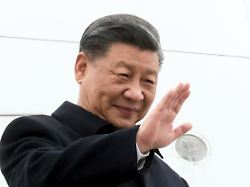Around 60 percent non-payment
New Silk Road: China has to grant more and more emergency loans
03/28/2023, 09:58 am
In the “New Silk Road” project, around 60 percent of all Chinese foreign loans are at risk of default. China must step in accordingly – with bailout loans. This drives up costs and raises questions.
According to a study, the ambitious “New Silk Road” trade project is costing China dearly. According to the Kiel Institute for the World Economy (IfW), more and more emerging and developing countries that have taken out loans from the People’s Republic for the construction of infrastructure can no longer service them as planned. As a result, the leadership in Beijing has drastically expanded the granting of bailout loans in recent years.
According to this, as of the end of 2022, 60 percent of all Chinese foreign loans are now at risk of default. In 2010, this proportion was only five percent, according to the analysis by researchers at the IfW with AidData, the Harvard Kennedy School and the World Bank. In order to prevent defaults, China is therefore granting emergency loans on a large scale.
By the end of 2021, the authors counted 128 bailout loans to 22 debtor countries totaling $240 billion. A large part of this – $170 billion – will be granted through central bank loans. These are particularly difficult for international organizations and rating agencies to understand. According to the information, these are mostly refinancing loans – i.e. the extension of terms or payment terms and the granting of new loans to finance due debts.
“No sentimental memory of Marco Polo”
“Debts are only waived extremely rarely,” says the IfW. Chinese banks have drastically reduced regular lending for new infrastructure and energy projects as a result of the large bailout loans, which, according to the analysis, raises questions about the future of the New Silk Road.
The Silk Road was the most important trade link between China and Europe in antiquity and the early Middle Ages. China announced in 2013 that it wanted to revive it. Critics fear that the People’s Republic wants to expand its influence. “The initiative for a new Silk Road is not what some in Germany believe: it’s not a sentimental reminder of Marco Polo,” warned former Federal Foreign Minister Sigmar Gabriel. “But it stands for the attempt to establish a comprehensive system for shaping the world in the interests of China.”
